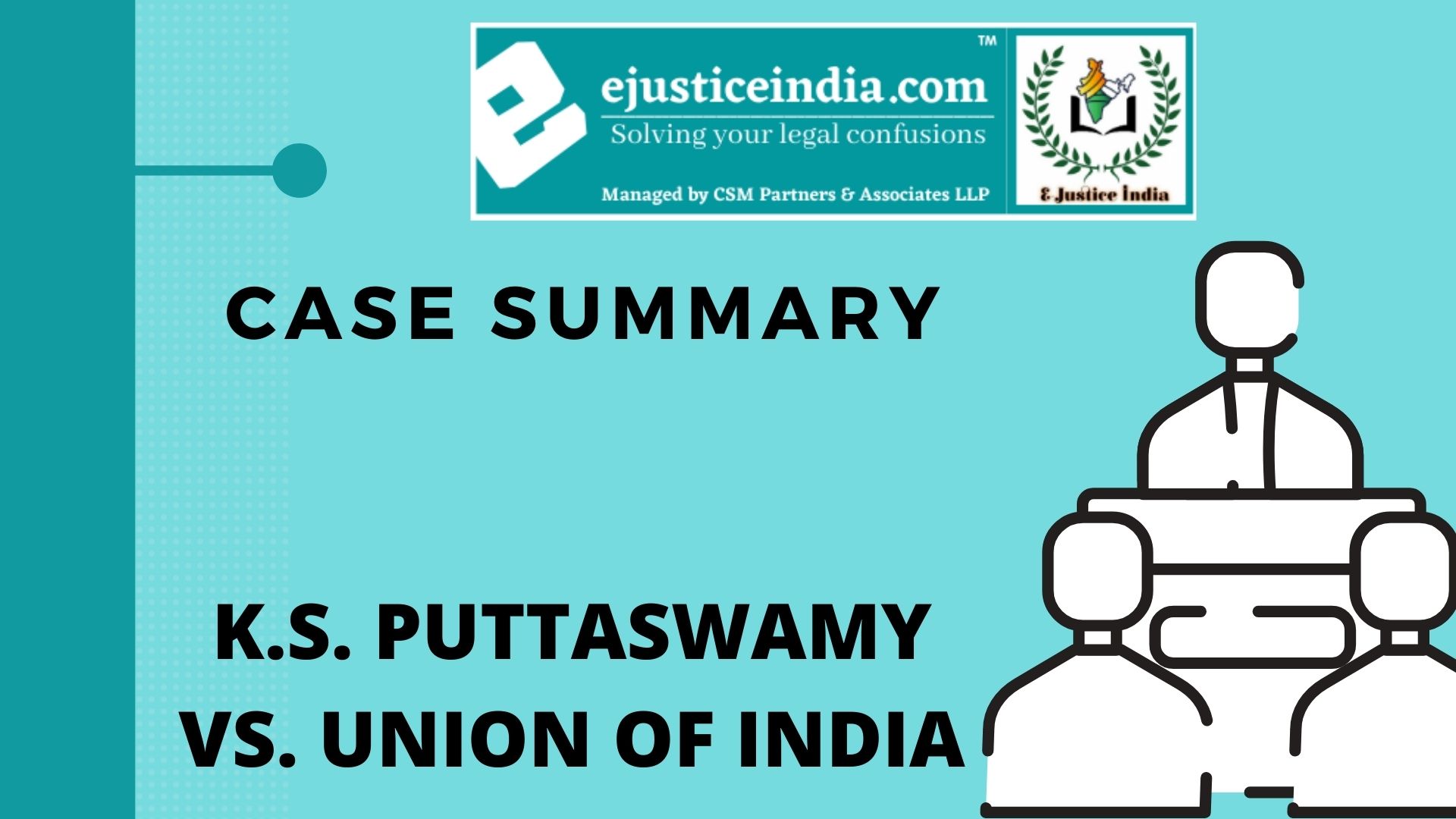ASHOKA KUMAR THAKUR VS UNION OF INDIA AND ORS ON 10 APRIL, 2008
Author : SYEDA KHIZRA RIZVI
In the Supreme Court of India
CASE NO.: Writ Petition (civil) 265 of 2006
PETITIONER: Ashoka Kumar Thakur
RESPONDENT: Union of India and Ors
DATE OF JUDGMENT: 10/04/2008
BENCH: Dr. ARIJIT PASAYAT & C.K. THAKKER
Introduction
Reservation is one of the tools with the motive of upliftment of the weaker section of society. At first in India, the benefit of reservation is only limited to the Scheduled Caste and Scheduled Tribes but after coming of Mandal Commission recommendations, Other Backward Classes were added in the reservation concept. In India, there are several views on the reservation in the field of educational institutions and public employment. There are load of protests and petitions in the Supreme Court as well as in High Courts from both the one who is in denial against reservation and also from those who are favor of reservation. As per the different argument both the sides, one side present the reservation may create the reserve discrimination or positive discrimination and other side came up with the argument that it is not fair when society corners some section of society from education or any mainstream facilities and put them in start of the race and adviced to be run and compete with others.
FACTs
There are many underprivileged people in India, particularly those classes/groups of people which in the past were given the caption of inferior caste or low status, and it was considered that the said peoples do not have an equal status in society. Since independence, every government is committed to eliminating this social evil from our society. India is having a long history of caste-based society and it becomes harsh in nature with the passage of time. The founding father of our constitution wants a casteless and classless society for India in future. They want the removal of inequalities from India from every aspect. The main reflection behind this idea are Article 15 and Article 46 of the constitution.
Issues
- The constitutionality of the provisions of the central education institutions acts, primarily Section 2(g) of the Act, its dealing with the identification of Socially and Educationally Backward Classes (hereinafter SEBCs).
- The constitutional validity of the Ninety-Third Amendment Act, the question is whether this act infringesthe basic structure of the constitution or not. This issue is developed on the principle of equality. Counsel on the behalf of the petition was of the point that this act and amendment are ultra vires of the constitution of India.
- There are no fixed guidelines for fixing of SEBCs or OBCs and this makes it very difficult to determine the beneficiaries. So, 27 per cent of seat reservation is useless and also the exclusion of the said creamy layer from SEBCs.
Judgment
The bench noticed that none of the single unaided private education institutions filed a single petition challenging the ninety-third amendment act infringes the basic structure of the constitution. The court does not want to get into the question raised that whether the ninety-third amendment act infringes the basic structure of the constitution with respect to the unaided private education institution. Court leaves this open for another appropriate case. The court only handles with the question put forward of the constitutionality of the ninety-third amendment act with regard to the State maintained institution and aided educational institution.


